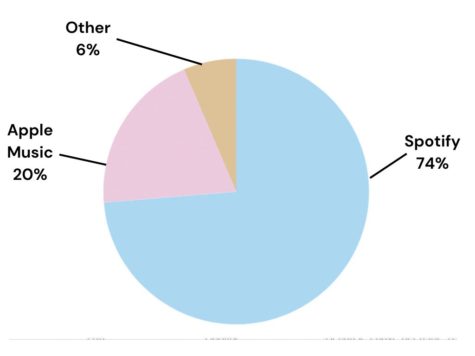School culture perpetuates illness
The pressure to push through sickness and come to school creates cycles of illness
It’s an unfortunate, yet familiar sight: the red cheeks, coughing, sneezing, and sniffling. Every few weeks it seems to be the same. It’s never just one student, and it seems as though there is a new plague of sickness coming down in the school in cycles, as students continue to neglect their own health.
Many students are too focused on their studies to miss school, even when they are sick. Health teacher Cris Larson believes the reason so many students aren’t taking sick days is because “there’s a culture that you should tough it out and do what you need to do.” Indeed, there is a stigma surrounding missing school, or, more importantly, missing important information in classes.

Many students choose to come to school sick in order to keep up with schoolwork.
But, the question arises, is this contained to our school or is it more universal? Sam Haj ‘18 is new to Blake this year, and sees this stigma as unique to the school and other high pressure schools. Haj, who moved from North Carolina, saw an increase in ill students, attributing it to the fact that“everyone is in tight quarters and sharing things.” She also admitted that, yes, both her and many of her friends had come to school when they should not have.
Christopher Sheffels ‘16 agrees with both Larson and Haj, however, there is an exception to students coming to school no matter what. In regards to his fellow seniors, Sheffels stated, “there are definitely people who I know, and if they were feeling slightly sick, knowing they had a test, they would take a pass for the day.”
In contrast to Sheffels, Michael Feldkamp ‘18 boldly stated “in my high school history, I have never stayed home sick…because if I do [get sick] I come to school anyways because it’s worse to miss a day of school than to be sick at school”
Brianna Pomonis ‘16 recently gave a senior speech on why students go to school even when sick. She stated, “I think they’re afraid of falling behind in class and not being able to catch up.” When asked whether she believed that the school addressed this stigma of sickness, Pomonis said, “I don’t think Blake does enough to let people know that it is okay to miss school and I think because it is such a high stress environment that it kind of accidentally supports the idea that you have to be here everyday.”
So, how can students stop this cycle of sickness? The first step would be for students and parents to recognize that it is perfectly okay to miss school, especially for illness. Larson believes that “if people could recognize that it’s okay to miss school,” our school would have much fewer ill students. Similarly, Pomonis says, “There are a lot more resources than people realize and that teachers are much more willing to help than people think they are.”

I’m Fiona, I'm editor of Arts and Culture. I have been contributing photos to Spectrum since the beginning of my freshman year, and this is my second...

This is my third year writing for Spectrum, and my third semester working as an editor. (I've edited Opinions, Front, and now Sci-Tech!) I'm so excited...





